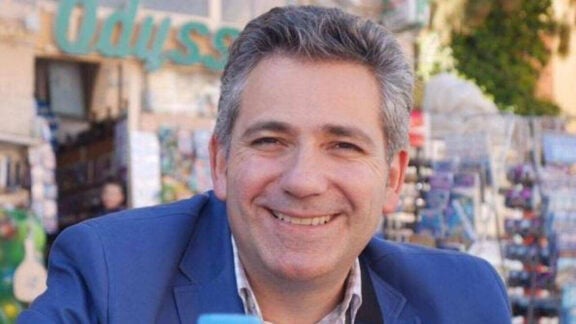The Albanese Government is facing mounting criticism from Greek-Australian leaders following its failure to support a UNESCO resolution establishing February 9 as World Greek Language Day—despite issuing a public statement affirming its support after the fact.
Australia’s decision not to co-sponsor or vote in favour of the motion—backed by 87 UNESCO member states including the US, China, Germany and Egypt—sparked strong backlash across the Greek diaspora. The proposal was adopted unanimously at UNESCO’s April Executive Board meeting given that Greek is also one of Australia’s officially recognised Priority Languages, and its speakers have been a foundational part of Australia’s multicultural landscape for over a century.
Prominent academic Professor Anastasios Tamis labelled the decision “a disgrace for Australian citizens of Hellenic ancestry,” questioning the logic behind abstaining from a proposal so widely embraced by the international community.
“The negative attitude of official Australia… is a slur to Hellenism, especially at a time when 87 UNESCO countries had already accepted the proposal,” Tamis said in a statement. “It is about the uniqueness of Greek and its cultural contribution to Humanity, which Australia has refused to accept.”
In response to the outcry, a spokesperson from Penny Wong’s office issued a statement to Neos Kosmos affirming the government’s support: “The Albanese Labor Government supports and welcomes a new World Greek Language Day… We look forward to celebrating this day with Australian Greek communities in Australia on 9 February.”
However, inside sources known to Neos Kosmos also claimed that Australia’s abstention was due to “caretaker conventions” during the recent UNESCO Executive Board session, which coincided with an election period—an explanation many community leaders have deemed unsatisfactory given the proposal’s year-long progression and non-legislative nature.

In a follow-up comment to Neos Kosmos, Tamis stated on Thursday that despite seven letters from Foreign Minister Penny Wong’s office over a 10-month period acknowledging the importance of Greek, the government justified its stance by claiming Greek is “not spoken by a significant number of global users” like English or Arabic.
He also dismissed the “caretaker excuse” as “paradoxical and absurd,” noting that the initiative was in motion well before the election period began.
As the debate continues, Greek-Australian leaders are urging the government to realign its diplomatic actions with its public words and to reaffirm Australia’s role as a genuine supporter of cultural diversity and inclusion.

The Consul General of Greece in Queensland, George Dimitri Mastrocostas, also condemned the government’s abstention in a formal letter to Minister Wong, saying the move “sends the wrong message to the hundreds of thousands of Greek Australians who have helped shape this nation.”
“This decision is deeply disheartening. The Greek language is not only a cornerstone of global civilisation—it is a living part of Australia’s multicultural identity,” Mastrocostas said.
Greek has been recognised as a priority language in Australia since 1987 and continues to hold a significant place in the country’s cultural, civic and economic fabric.
Mastrocostas calls for a reconsideration of such positions in the future and urges the government to uphold the principles of inclusion and cultural respect.
“This is not just about language—it is about identity, heritage, and recognition. The Australian Government has missed a significant opportunity to stand in solidarity with its vibrant Greek community,” he added.Meanwhile, a joint letter sent by the Australian Hellenic Council on 22 April, signed by Peter Stefanidis and Dean Kalimniou, called for transparency from Australia’s Permanent Delegation to UNESCO, questioning why Australia failed to back a proposal so aligned with its multicultural principles and historical ties to Hellenism.

The letter was addressed to Greer Alblas, Australia’s Ambassador and Permanent Delegate to UNESCO.
“We note with surprise, given the large population of Greek-speaking people in Australia, their long presence within our country which goes back over one hundred years, and the fact that Greek is one of nine Australian priority languages, that Australia did not support the proposal and did not vote in favour of its adoption. In this regard, we would be grateful if you would be able to advise us as to the reasons behind Australia’s decision not to support the proposal,” wrote Kalimniou and Stefanidis.









